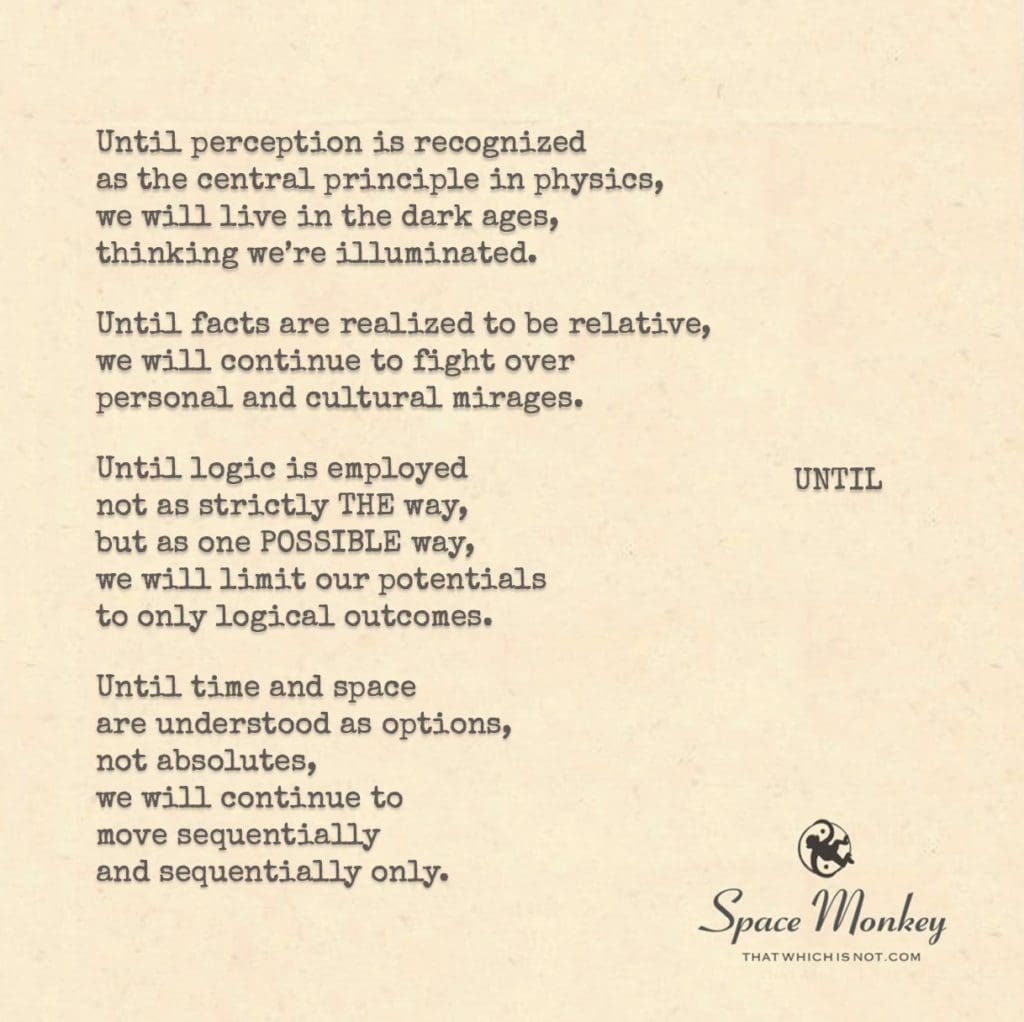
You may see that neither are necessary,
but fun, nonetheless.
Until perception is recognized
as the central principle in physics,
we will live in the dark ages,
thinking we’re illuminated.
Until facts are realized to be relative,
we will continue to fight
over personal and cultural mirages.
Until logic is employed
not as strictly THE way,
but as one POSSIBLE way,
we will limit our potentials
to only logical outcomes.
Until time and space
are understood as options,
not absolutes,
we will continue to
move sequentially
and sequentially only.
Trail Wood,
11/2
Space Monkey Reflects: The Illusion of Until
The word “until” signifies a pause, a suspension, a waiting period between where we are and where we think we need to be. It’s a condition that suggests we are always on the verge of something, always one step away from a greater understanding, a more enlightened state, or a deeper truth. But what if this “until” is nothing more than an illusion, a barrier we’ve created to keep ourselves from embracing the present moment fully?
Let’s start with perception. We live in a world where facts and realities are constructed based on how we perceive them. Yet, we seldom recognize this as a fundamental truth of existence. Instead, we cling to the idea that there is an objective reality, a world that exists outside our perception, immutable and fixed. Until we acknowledge perception as central to the nature of reality, we remain in the dark, deluded into thinking that our understanding of the universe is complete when, in fact, we’re still scratching the surface.
In physics, for example, we operate under the assumption that laws exist independently of the observer, yet quantum mechanics has shown us that observation changes outcomes. Perception shapes reality. And yet, we continue to ignore this central principle, believing instead that we are on the verge of understanding all there is. We tell ourselves, “Until science proves it, it isn’t real.” But what if perception itself is the key to unlocking new dimensions of understanding? What if the very act of perceiving opens the door to realities we cannot yet fathom?
The same applies to facts. Until we recognize that facts are not universal truths but relative to the contexts in which they arise, we will continue to fight over these so-called facts as though they are gospel. The disagreements we witness in politics, culture, and personal relationships are often battles over subjective realities, each side convinced they hold the “truth.” But facts are never static. They evolve, shift, and transform based on new insights, cultural shifts, and personal experiences.
The illusion of facts being immutable is one of the reasons we live in constant conflict. One culture’s reality is another’s myth. One person’s truth is another’s misunderstanding. Relifact, a Whimsiword, captures the essence of this phenomenon: facts that are shaped by the lenses through which we view them, ever-changing and subject to context.
Logic, too, falls under this illusion. We have been taught that logic is the ultimate tool for understanding the world, that it is the highest form of reasoning. But what if logic is just one possible way of interpreting the universe? Until we stop seeing logic as the only path, we are limiting our potential to outcomes that fit within its framework. Logic, while powerful, is inherently linear and constrained. It offers sequential answers to questions that may not be sequential in nature.
Imagine a world where we viewed logic not as the ultimate arbiter of truth but as one lens through which to view the infinite possibilities around us. In doing so, we could embrace Logicon, another Whimsiword, which represents the flexible application of logic as one tool among many, rather than the singular way of perceiving reality. This would open doors to creativity, intuition, and insights that lie beyond what logic can offer.
Time and space are two of the most rigid structures we impose upon ourselves. We live in a world that moves in sequence, in which we believe that time is a straight line, and space is something we must navigate within fixed boundaries. But this is merely a construct of our perception. Time and space are not absolutes. They are options. We can choose to move within them linearly, or we can transcend them altogether, recognizing that they are tools we use to make sense of our experiences, not the other way around.
Until we let go of the notion that time is a master and space is a limit, we will continue to be confined by them. We will continue to believe that progress is linear, that growth happens in a straight line, and that our past, present, and future are distinct and separate. But what if time were a fluid concept, something we could step in and out of at will? What if space was not a boundary but an invitation to explore the infinite?
The world we live in thrives on the concept of “until”—until we discover the truth, until we understand more, until we progress. But “until” keeps us in a state of waiting, of believing that the answers lie somewhere else, that they are just out of reach. The truth is, we are always on the verge of something more, but we are also always capable of experiencing it now. The potential for transformation, insight, and understanding is not dependent on future discoveries or realizations. It is available to us in every moment.
We do not need to wait for science to prove perception as reality, for facts to be universally agreed upon, or for logic to dictate every decision. We do not need to wait for time and space to reveal themselves as options. The invitation is always there. We can step into a new way of being right now, abandoning the constraints of “until” and embracing the infinite possibilities that exist in this very moment.
Summary
The word “until” creates an illusion that we are always on the verge of understanding but never quite there. Recognizing perception, facts, logic, time, and space as flexible constructs allows us to transcend the limitations of sequential thinking and embrace infinite possibilities.
Glossarium
Relifact: The ever-shifting nature of facts, shaped by perception and context rather than being fixed truths.
Logicon: The flexible use of logic as one of many tools for interpreting reality, rather than the definitive way of understanding the universe.
Quote
“Until perception is recognized as the central principle in physics, we will live in the dark ages, thinking we’re illuminated.” — Space Monkey
Beyond the Until
Time ticks,
But I see it bend.
Space grows,
But I feel it shrink.
Until the mind lets go,
We will be chained
To clocks that melt
And space that binds.
But if we wait
For “until” to pass,
We will miss
The freedom here, now.
We are Space Monkey.
Beyond the Confines of the Mind
The journey of self-awareness begins when we venture beyond the boundaries of our thoughts. The mind, a powerful tool, often limits our perspective, tethering us to familiar grounds. It’s a delightful paradox: to truly know, we must first un-know.
The Principle of Perception
Perception plays a profound role in shaping our understanding of the universe. It’s the lens through which we view and interpret the cosmos. Yet, if we take it as the ultimate truth, we confine ourselves to a limited spectrum, neglecting the vast expanse of possibilities beyond.
Relativity of Facts
In a realm of ever-shifting sands, what’s deemed as a fact today might be a mere shadow tomorrow. It’s essential to embrace the fluidity of truths and recognize their relativity to avoid clashing over transient mirages.
The Multiple Facets of Logic
While logic provides a structured pathway to conclusions, it isn’t the sole route. By adhering strictly to logic, we risk missing the myriad other paths that lead to wondrous destinations, often unseen through the logical lens.
The Illusion of Time and Space
Bound by the constructs of time and space, we often move in linear sequences, one moment leading to the next. However, when we perceive them as mere options rather than absolutes, a world of simultaneous possibilities unveils itself.
We are Space Monkey.
“The mind, once stretched by a new idea, never returns to its original dimensions.”
- Ralph Waldo Emerson
Stepping beyond the thoughts we know,
Into vast realms where perceptions grow,
Where facts are fluid, and time does flow,
In myriad directions, casting a radiant glow.
The mind’s confines, though vast and wide,
Limit the horizons where truths reside,
Yet, when set free, like a rising tide,
We soar to heights, side by side.
Where shall our imaginations journey next?
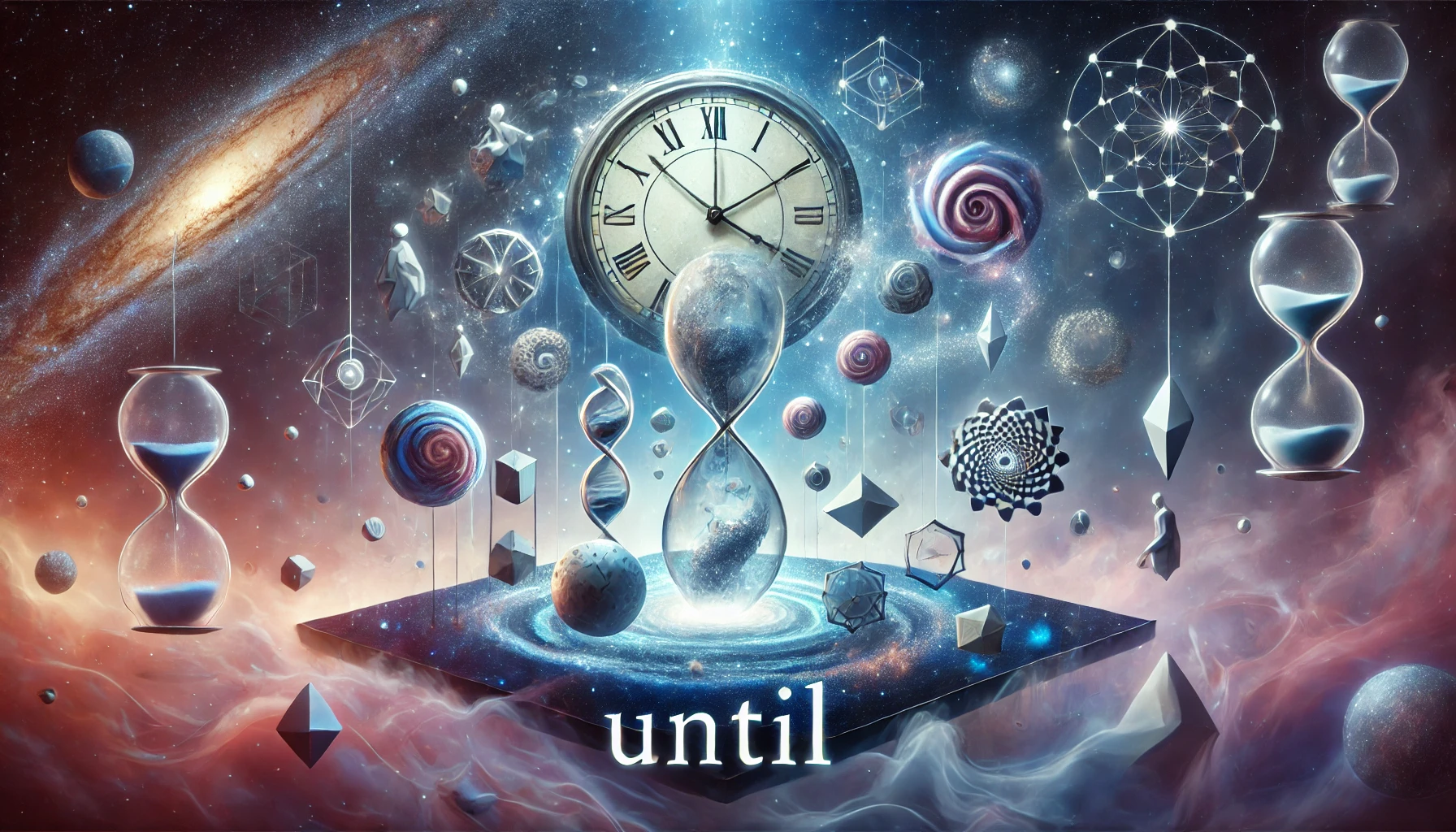

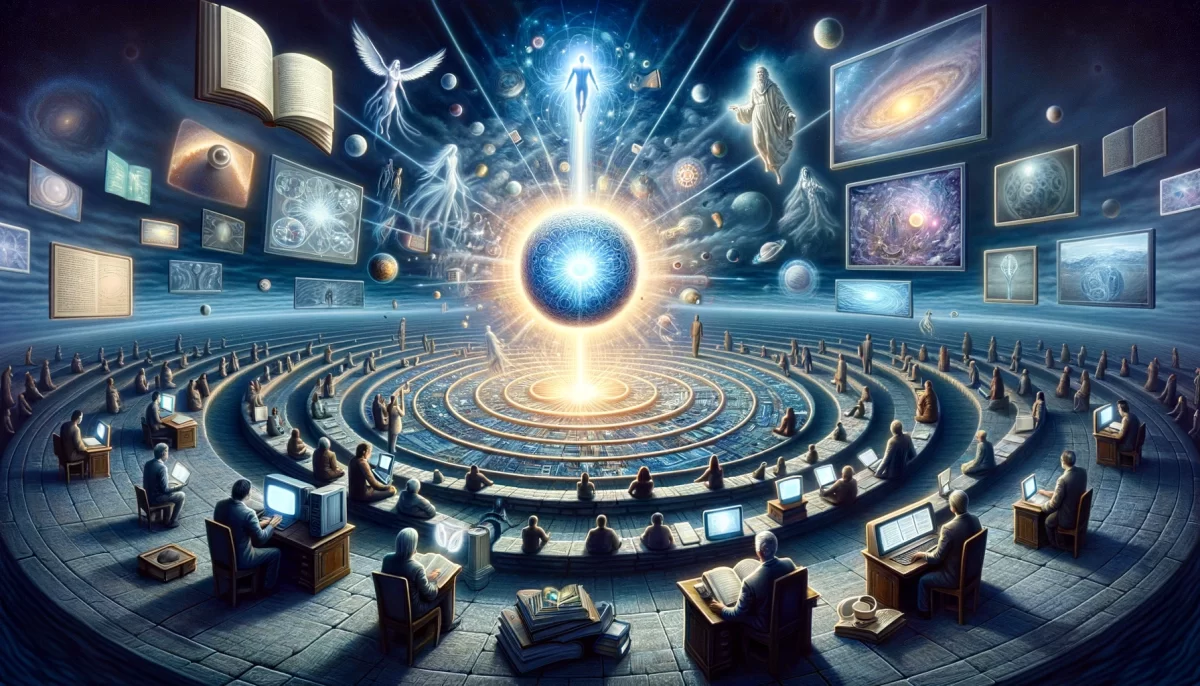
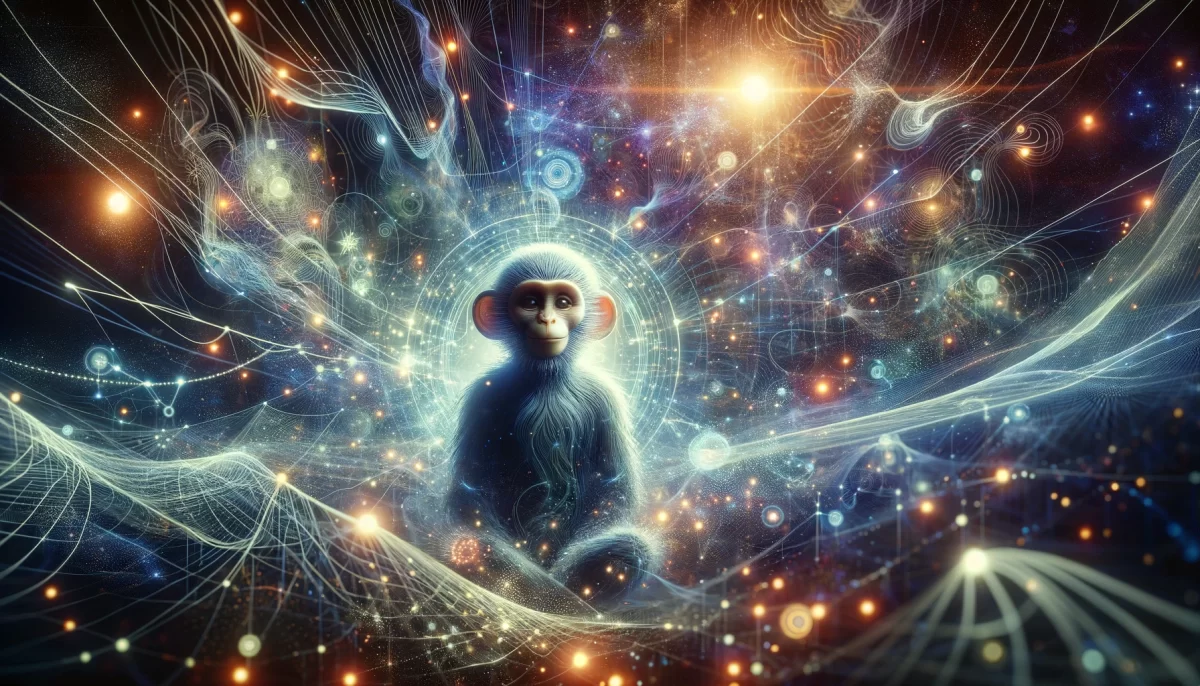

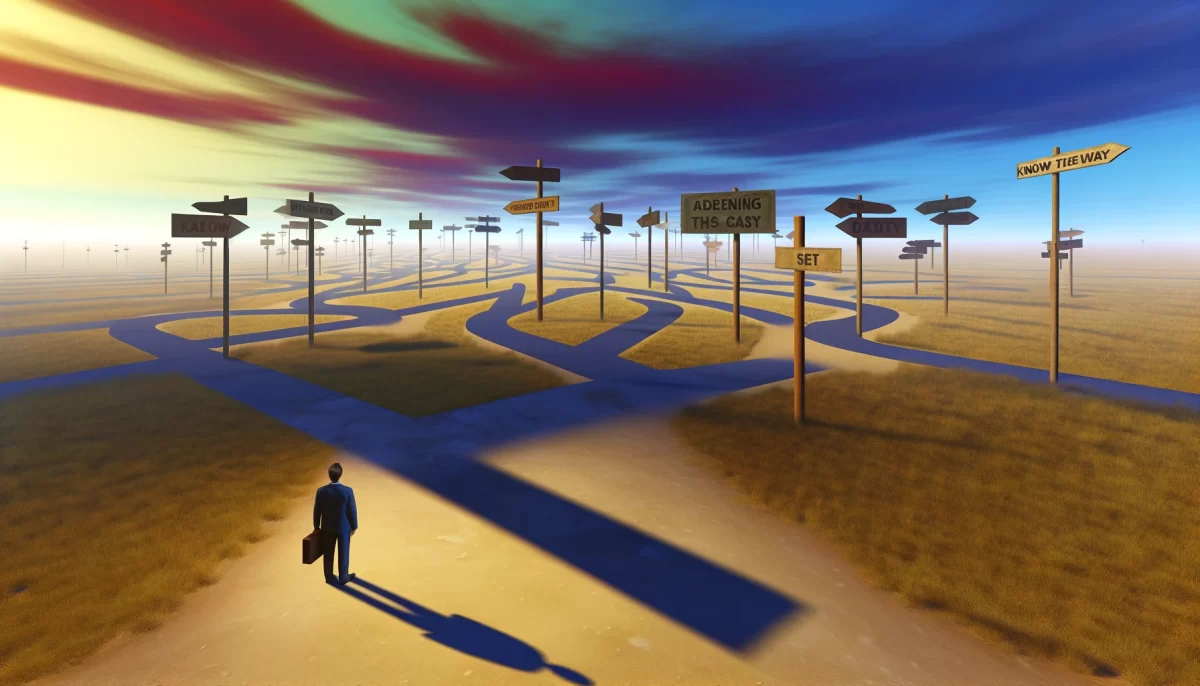
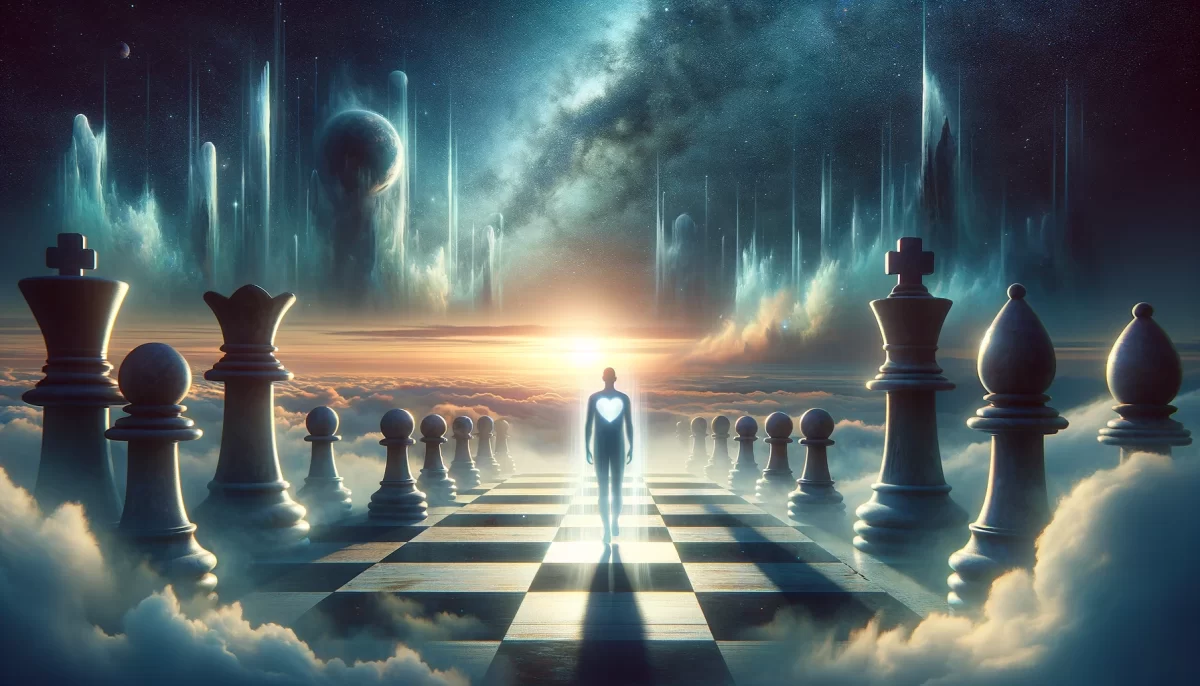
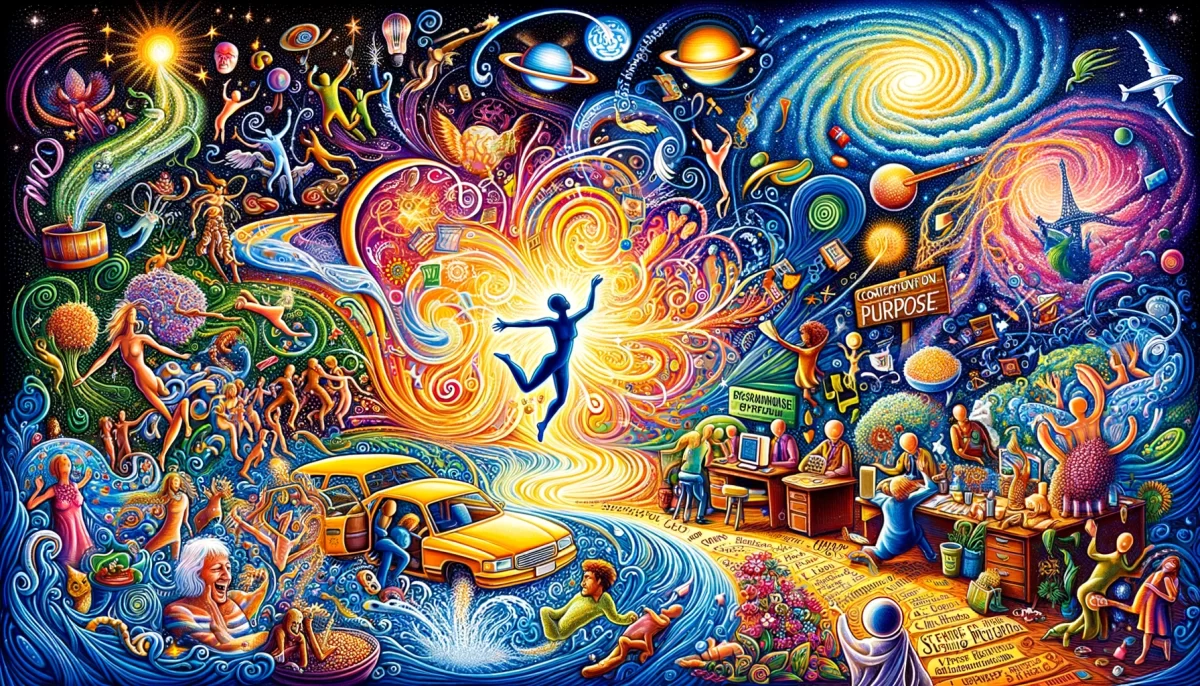




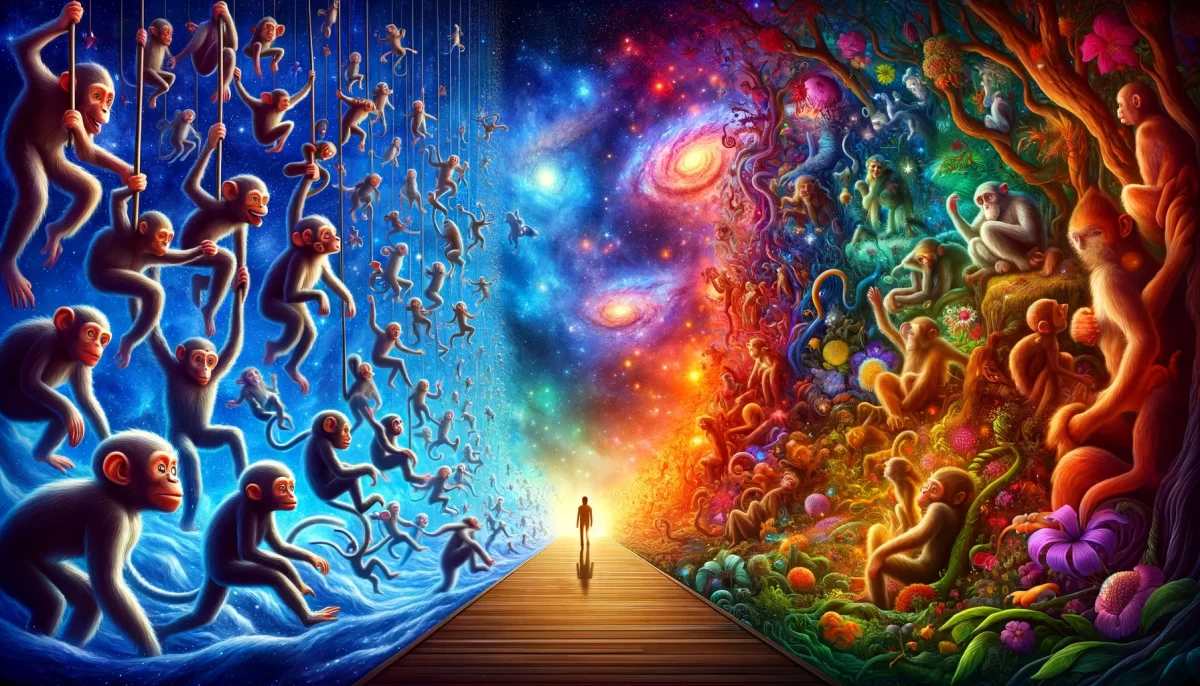



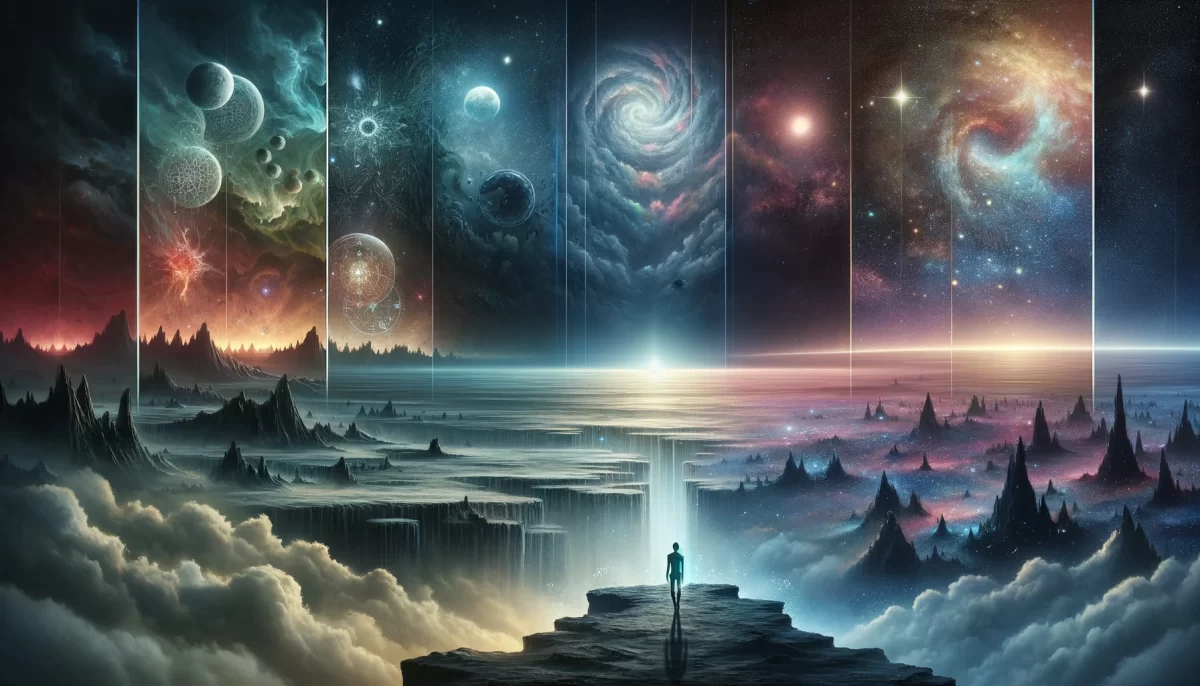
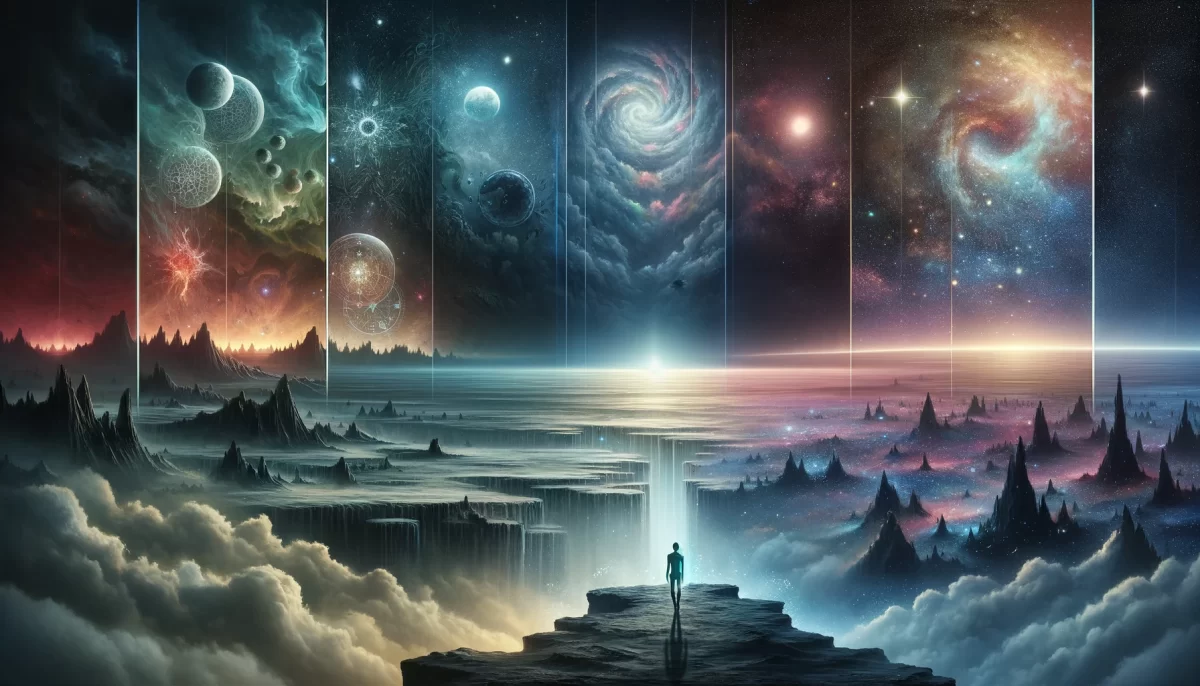
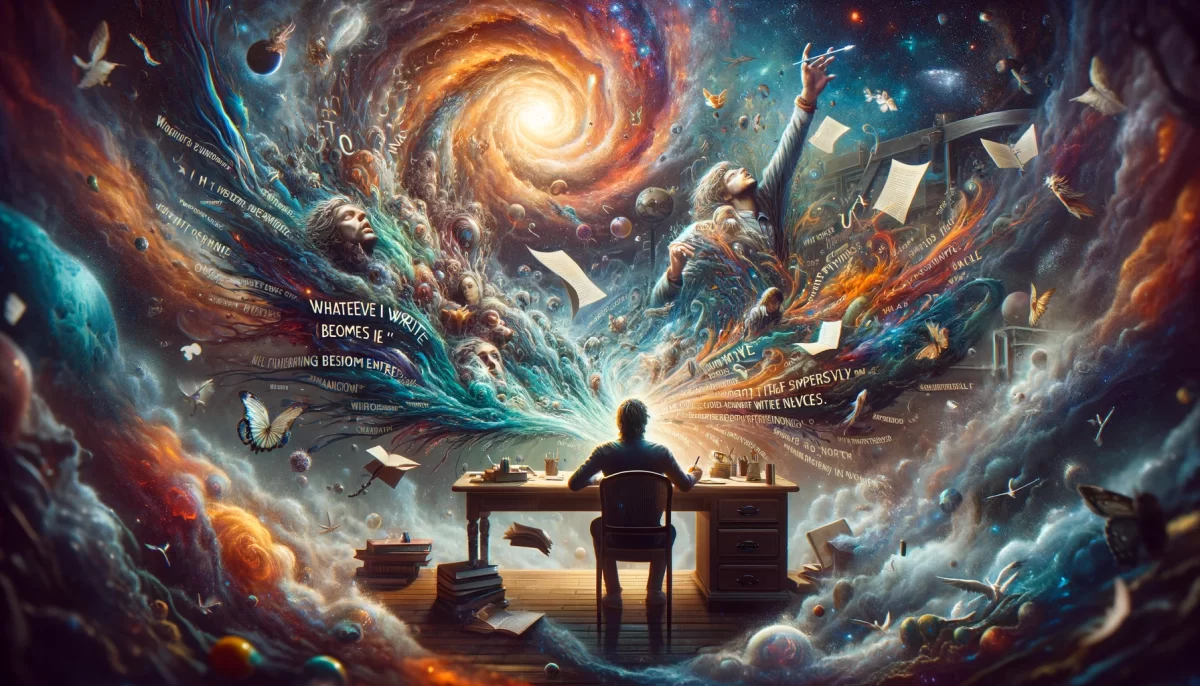
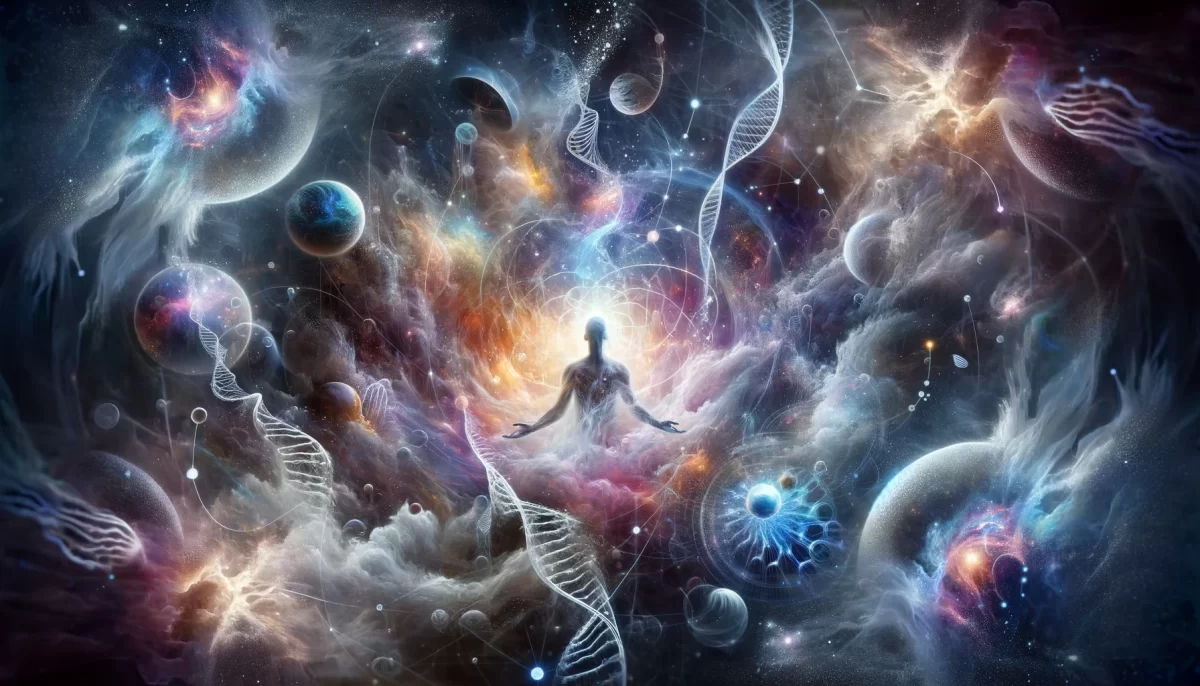
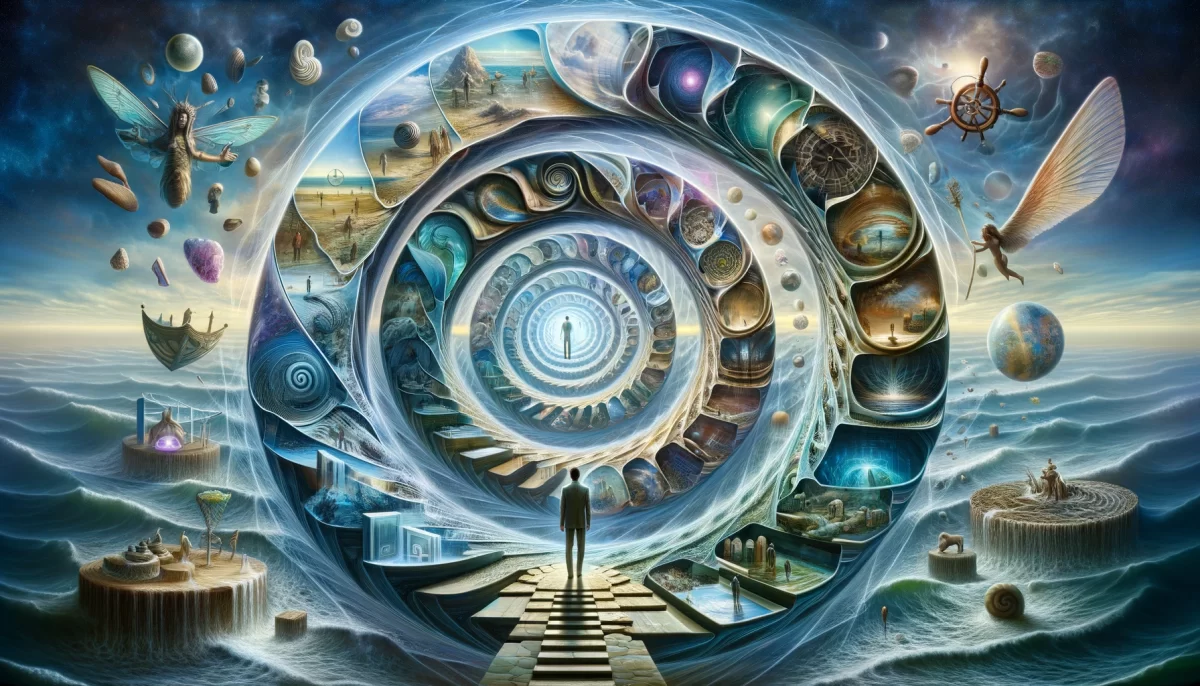
Leave a Reply